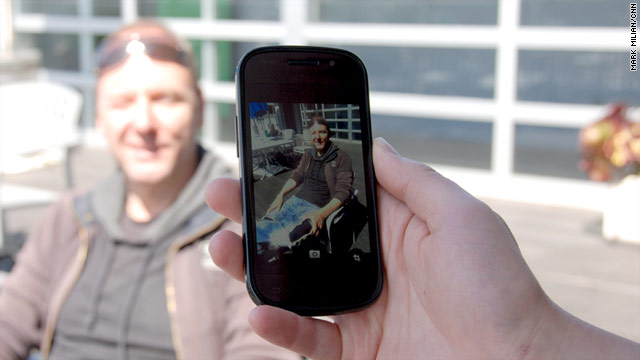Google is working on a mobile application that would allow users to snap pictures of people's faces in order to access their personal information, a director for the project said this week. In order to be identified by the software, people would have to check a box agreeing to give Google permission to access their pictures and profile information, said Hartmut Neven, the Google engineering director for image-recognition development. Google's Profiles product includes a user's name, phone number and e-mail address. Google has not said what personal data might be displayed once a person is identified by its facial-recognition system. "We recognize that Google has to be extra careful when it comes to these [privacy] issues," Neven told CNN in an exclusive interview. "Face recognition we will bring out once we have acceptable privacy models in place." While Google has begun to establish how the privacy features would work, Neven did not say when the company intends to release the product, and a Google spokesman said there is not a release timeline. The technology wouldn't necessarily be rolled out in a separate app, a Google spokesman said. Instead, facial recognition could be issued as an update to an existing Google tool, such as its image search engine. Google has had the technical capabilities to implement this type of search engine for years. Just as Google has crawled trillions of Web pages to deliver results for traditional search queries, the system could be programmed to associate pictures publicly available on Facebook, Flickr and other photo-sharing sites with a person's name, Neven said. "That we could do today," he said. But those efforts had frequently stalled internally because of concerns within Google about how privacy advocates might receive the product, he said. "People are asking for it all the time, but as an established company like Google, you have to be way more conservative than a little startup that has nothing to lose," said Neven, whose company Neven Vision was acquired by Google in 2006. "Technically, we can pretty much do all of these things." Neven Vision specialized in object and facial recognition development. The object-related programs are reflected in an image search engine, called Goggles. The face-recognition technology was incorporated into Picasa, Google's photo-sharing service, helping the software recognize friends and family members in your computer's photo library. In 2009, Google acquired a company called Like.com, which specialized in searching product images but also did work in interpreting pictures of people. Google has also filed for patents in the area of facial recognition. Privacy concerns As Google's size and clout grow, so does the chorus of critics who say the company frequently encroaches on people's privacy. Over the years, Google has made various missteps.
